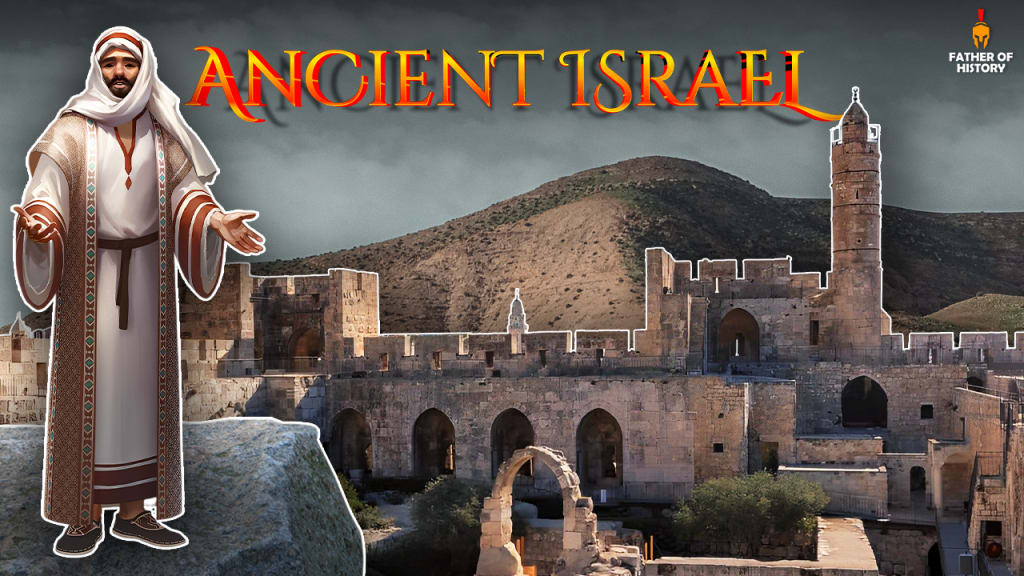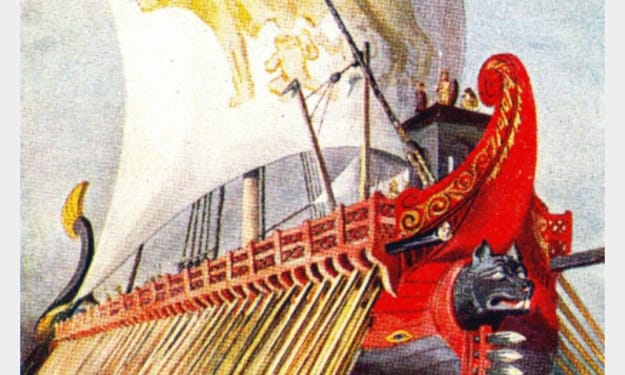Ancient Israelite Steps
Israelite and Judean religions emerged within the larger West Semitic civilization, also known as Canaanite culture, as early as the 10th century BCE. Ancient Israelite and Judean religion was polytheistic during the 10th and 7th centuries BCE.

The Levant region of the Mediterranean Sea, which approximately corresponds to the modern-day State of Israel, was under the rule of the Kingdom of Israel. Historically, the area was referred to as Judea, Palestine, Yehud Medinata, Canaan, Phoenicia, and, until the Romans destroyed it in 136 CE, Syria-Palestina. The area was purportedly founded by Isaac and Jacob, two descendants of the Hebrew patriarch Jacob, also known as Israel, and named after him in the Bible. Joshua, a Hebrew general, is said to have later conquered the area approximately 1250 BCE, following the Exodus from Egypt under Moses.
Click here to see the full video
The stele of the Egyptian pharaoh Merenptah (1213–1203 BC) makes the earliest reference to Israel as a cultural entity when he writes that "Israel lays shattered, deprived of its seed." No scholarly agreement has been reached on the final meaning of the reference, which appears to be to a people rather than a kingdom. It is also unclear why Israel would be mentioned on a stele that commemorates an Egyptian victory over the Libyans, unless—which is unlikely—the Israelites were a part of the coalition known as the Sea Peoples.
The Israelites had established a kingdom in the region by 1080 BC and had also created a culture that took influence from prior civilizations.
Click here to see the full video
This historical view conflicts with the conventional wisdom that the Israelites arrived in Canaan after a military conquest of the area and imposed their culture on an already-existing people. After King Solomon's demise (965–931 BC), the kingdom was divided in two, with the Kingdom of Israel to the north and Judah to the south. According to Assyrian military strategy, the Assyrians overthrew the northern kingdom in 722 BC and exiled its inhabitants. In 598–582 BC, the Babylonians invaded Judah, and they took the most powerful people in the area to Babylon.
Click here to see the full video
Following their destruction of the Babylonian Kingdom, the Persians allowed the Israelites to return to their homeland in 538 BC, and they controlled the area as a part of their empire until Alexander the Great overthrew them (356-323 BC). After Alexander's demise, Ptolemy I and the Seleucid Empire ruled the area until 168 BC, when the Israelites rose up under the leadership of the Maccabees and founded the Hasmonaean Dynasty. After Rome conquered the territory in 63 BC, there were periods of mostly peaceful coexistence up until the Bar Kochba Revolt of 132-136 CE, when the Jews were routed, Jerusalem was destroyed, and the country was given the new name Syria-Palestina by the Roman emperor Hadrian.
Click here to see the full video
Genesis tells the story of the patriarch Abram leading his people to the country of Canaan after receiving instructions from his deity. Abraham, his son Isaac, and eventually his son Jacob (Israel) founded the Hebrew civilisation in Canaan. Jacob had twelve sons, but he gave his youngest son, Joseph, special treatment. This angered his siblings, who eventually sold Joseph as a slave to the Ishmaelites before reselling him in Egypt. Once there, he gained notoriety for his prowess in dream interpretation and became into a strong leader who prevented hunger during a famine by saving the area. At this time, Joseph's father and brothers arrived and made themselves at home in Egypt. In accordance with the Book of Exodus, the Israelites eventually grew too numerous and were reduced to slavery by the Egyptians.
Click here to see the full video
The Israelites were held captive until they were freed and taken to the country of Canaan, which had been promised to his people by their deity, through Moses the Lawgiver. Due to a miscommunication with this deity, Moses was unable to enter the area himself. As a result, he delegated authority to Joshua, his deputy, who subsequently led the Israelites to victory over the native population and divided the land among his own. It should be highlighted that the Bible is the only source for this history and the military invasion of Canaan. While archaeological evidence from the area that was formerly Canaan does suggest widespread upheaval between 1250 and 1150 BC, it does not line up neatly with the biblical account.
About the Creator
Father of History
Welcome to Father of History!
Your mind-blowing History channel!
All about History and Mythology in one place.
Our goal is to create educational resources that will make people love history and mythology.






Comments
There are no comments for this story
Be the first to respond and start the conversation.